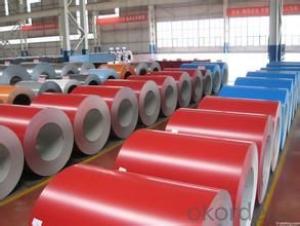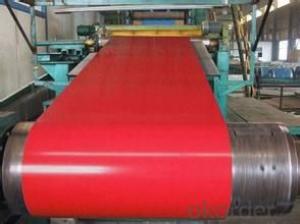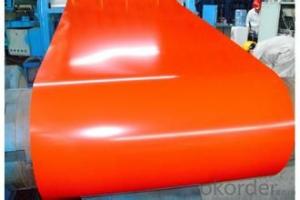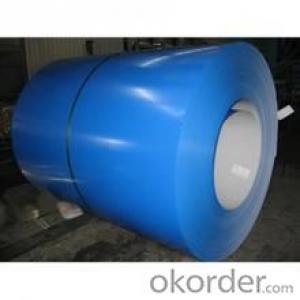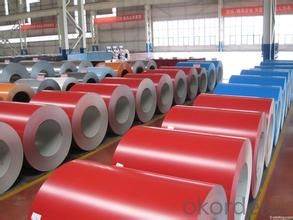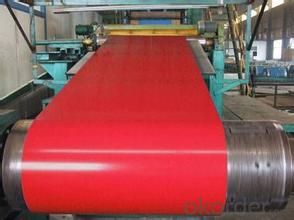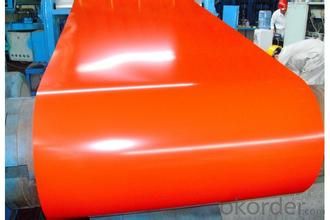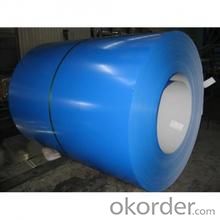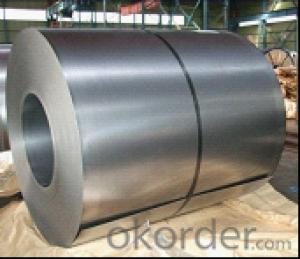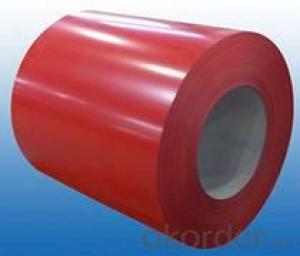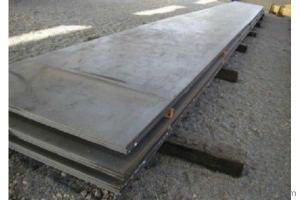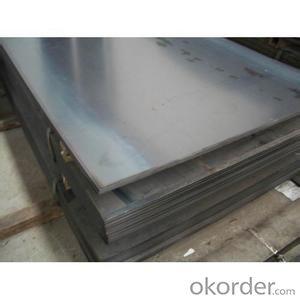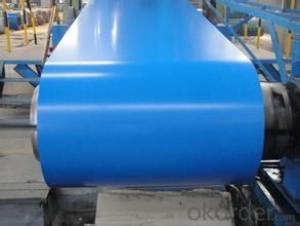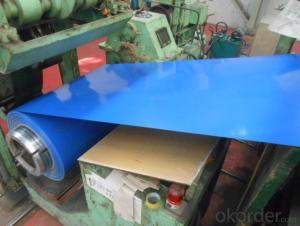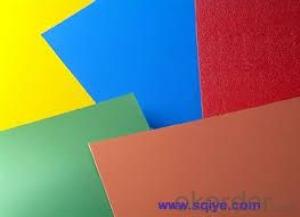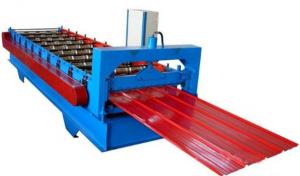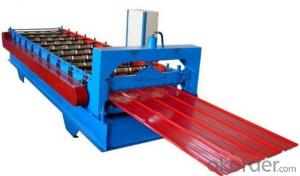Prepainted galvanized corrugated plate / sheet-CGCC
- Loading Port:
- Tianjin
- Payment Terms:
- TT OR LC
- Min Order Qty:
- 30 m.t.
- Supply Capability:
- 500000 m.t./month
OKorder Service Pledge
OKorder Financial Service
You Might Also Like
Specification
1.material :
galvanized steel sheet / prepainted galvanized sheet
2.sheet thickness :
normal use 0.3-0.6mm
3.length:
any length,according to the transportation,generally less than 12m
4.color:
standard color:red,blue,white,grey
special color:according to RAL color
prepainted corrugated steel plate | |
material | galvanized steel sheet |
prepainted galvanized sheet | |
model No. | types of roof sheets |
sheet thickness | normal use 0.3-0.6mm |
length | any length,according to the transportation,generally less than 12m |
color | standard color:red,blue,white,grey |
special color:according to RAL color | |
characteristic | 1:weather proof |
2:heating insulation | |
3:fireproof | |
4:anti-rust | |
5:sound insulation | |
6:long life span:more than 15 years | |
advantages | 1.low foundation cost |
2.easy construction | |
3.time saving | |
4.labor saving | |
application field | 1:construction:prefabricated house,steel house,mobile house,modular house,villa,bungalow design,portable house/carbin,ready made house,kiosk booths,steel building... |
2:container manufacturing | |
3:household appliances and furniture | |
4:vehicle and vessel manufacturing | |
5:others,like machinery structual parts,maufacturing shells of motors and so on | |
packing | plastic film,pallet or as your request |
- Q: What are the safety precautions when handling steel sheets?
- When handling steel sheets, some important safety precautions include wearing appropriate personal protective equipment such as gloves, safety glasses, and steel-toed shoes to protect against cuts and injuries. It is necessary to lift and carry steel sheets properly using correct lifting techniques and equipment to avoid strain or back injuries. Additionally, ensuring a clean and organized work area, free from any tripping hazards, is essential. Proper storage and stacking of steel sheets is crucial to prevent them from falling or shifting, causing accidents. Regular inspection and maintenance of equipment used for handling steel sheets is also important to ensure safe operation.
- Q: What are the common lengths of steel sheets?
- The common lengths of steel sheets can vary depending on the specific application and industry. However, standard lengths for steel sheets typically range from 96 inches (8 feet) to 240 inches (20 feet).
- Q: What is the difference between a galvanized and aluminum steel sheet?
- A galvanized steel sheet is made from carbon steel that has been coated with a layer of zinc to protect it from corrosion. This process, known as galvanization, involves immersing the steel sheet in a bath of molten zinc, which forms a protective layer on the surface. Galvanized steel sheets are known for their durability, as the zinc coating acts as a barrier against moisture, chemicals, and other corrosive elements. They are commonly used in construction, automotive, and industrial applications. On the other hand, an aluminum steel sheet is made from aluminum, which is a lightweight and corrosion-resistant metal. Aluminum sheets are manufactured by rolling aluminum ingots into thin sheets of varying thicknesses. They offer excellent corrosion resistance, even without additional coatings or treatments. Aluminum sheets are commonly used in aerospace, transportation, and architectural applications. In terms of differences, the main distinction between galvanized and aluminum steel sheets lies in their composition and protective properties. Galvanized steel sheets have a zinc coating, which provides superior corrosion resistance compared to bare carbon steel. This makes them more suitable for outdoor and high-moisture environments. Additionally, galvanized steel sheets can be easily welded and painted, offering more versatility in terms of customization. On the other hand, aluminum steel sheets have inherent corrosion resistance due to the presence of aluminum. They are lighter in weight than galvanized steel sheets, making them more suitable for applications where weight reduction is a priority. Aluminum sheets also have better thermal conductivity and reflectivity properties, making them ideal for applications involving heat dissipation or insulation. In summary, galvanized steel sheets are carbon steel sheets coated with a layer of zinc for enhanced corrosion resistance, while aluminum steel sheets are made from aluminum and offer inherent corrosion resistance. The choice between galvanized and aluminum steel sheets depends on the specific requirements of the application, such as the level of corrosion protection needed, weight considerations, and thermal properties desired.
- Q: Can steel sheets be recycled multiple times?
- Yes, steel sheets can be recycled multiple times without losing their properties or quality. Steel is a highly recyclable material that can be melted down and reused repeatedly, making it an environmentally sustainable choice.
- Q: Are steel sheets suitable for earthquake-resistant construction?
- Yes, steel sheets are suitable for earthquake-resistant construction. Steel is known for its high strength and ductility, making it an ideal material for withstanding seismic forces. Steel sheets can be used to reinforce buildings, providing stability and preventing collapse during earthquakes. Additionally, steel structures can be designed to absorb and dissipate seismic energy, reducing the impact on the overall structure.
- Q: Can steel sheets be used for manufacturing containers or packaging?
- Yes, steel sheets can be used for manufacturing containers or packaging. Steel is a durable and strong material that can provide adequate protection and security for various products during transportation and storage. Additionally, steel sheets are resistant to corrosion, making them suitable for long-term use in demanding conditions.
- Q: How do you calculate the weight of a steel sheet?
- To calculate the weight of a steel sheet, you need to know its dimensions (length, width, and thickness) and the specific gravity of steel. Multiply the area of the sheet (length multiplied by width) by the thickness and then multiply the result by the specific gravity of steel (usually around 7.85 g/cm³). This will give you the weight of the steel sheet in grams or kilograms.
- Q: Are steel sheets suitable for water tanks or reservoirs?
- Yes, steel sheets are suitable for water tanks or reservoirs. Steel is a durable and strong material that can withstand the weight of water and does not easily corrode or leak. It is commonly used in the construction of water tanks and reservoirs due to its reliability and longevity.
- Q: What is the difference between a smooth and expanded metal steel sheet?
- A smooth steel sheet refers to a flat surface without any visible patterns or perforations. It is typically used in applications where a sleek appearance is desired, such as in architectural or decorative purposes. Smooth steel sheets are commonly used for countertops, backsplashes, and wall coverings. On the other hand, an expanded metal steel sheet is created by cutting and stretching a solid sheet of steel to create a pattern of interconnected diamond-shaped openings. This process enhances the structural integrity of the sheet while allowing for increased airflow, visibility, and drainage. Expanded metal steel sheets are commonly used in industrial and construction applications, such as walkways, grating, fencing, and machine guards. The main difference between a smooth and expanded metal steel sheet lies in their appearance, functionality, and intended applications. Smooth steel sheets offer a clean and polished look, while expanded metal steel sheets provide strength, ventilation, and versatility. Ultimately, the choice between the two depends on the specific requirements of the project at hand.
- Q: Are steel sheets resistant to termites?
- No, steel sheets are not resistant to termites.
Send your message to us
Prepainted galvanized corrugated plate / sheet-CGCC
- Loading Port:
- Tianjin
- Payment Terms:
- TT OR LC
- Min Order Qty:
- 30 m.t.
- Supply Capability:
- 500000 m.t./month
OKorder Service Pledge
OKorder Financial Service
Similar products
Hot products
Hot Searches
Related keywords
